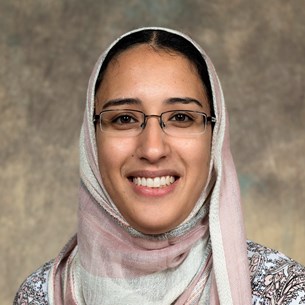As a chief resident and later general internal medicine (IM) faculty, I loved developing curricula and working on various initiatives related to medical education. I remember my residency mentor asking me if I was sure about pursuing hematology and oncology as a subspecialty, stating that the academic environment there might not embrace this specific niche the way it is accepted in general IM. Case in point: While interviewing for fellowship positions, I was asked at one institution about my specific interests. Rather than providing the traditional tumor-specific subspecialty academic focus, I discussed my interests in education and quality improvement. The interviewer rolled his eyes and laughed, “I guess those who can’t do teach.” Fortunately, there are many institutions that value those of us who wish to pursue a clinician educator role, and several fellowship programs even offer a dedicated track. The reality remains, however, that this is a less traditional academic track in many organizations, with a lack of clearly defined scholarly metrics and promotion criteria and a paucity of mentors.
As I wrap up my fellowship training, I am committed to this career course and hope to promote more awareness of paths within this specific academic niche. There is a growing community of dedicated leaders in this field scattered across the nation. This sparked the idea of launching a podcast dedicated to Women in Medical Education, with the goal of providing a supportive network of likeminded individuals who can collaborate, mentor, and sponsor one another. Out of a conversation with one of my role models, Dr. Martina Murphy (@DrMMurphy), the hematology oncology program director at the University of Florida, we set out to record our first episode of #WomenInMedEd and invited two guests: Dr. Elizabeth Henry (@DocLHenry), medical director at theMednet and former hematology oncology program directory at Loyola Medical Center, and Dr. Julia Close (@JuliaLClose), associate dean of graduate medical education and designated institutional officer at the University of Florida.
An unscripted conversation had us discussing pink hair and “joy-meters,” in addition to exploring the different journeys of each of those women leaders and the influences that shaped their paths in medical education.
Here are some key takeaways—you can listen to the full conversation in our first episode, “So you think you want to be a medical educator?”
- It is okay if you do not fit the traditional mold.
As Dr. Henry discusses, authenticity is key in a medical educator role. There are often challenges, especially for women, to adhere to a specific leadership style. However, we each bring a unique personality and skillset to our roles, and only once you embrace your true self can you truly thrive as a leader.
- The power of the “strategic yes.”
Frequently, we are cautioned about signing up for too many projects and counselled on the importance of saying no. Dr. Murphy, however, discusses the flip side: a strategic yes can help land you the correct opportunities. “Others will recognize your enthusiasm and you can get your name out there and open doors,” she said.
- You must find a way to fit your passions into the existing scholarly metrics for successful credit and promotion at your institution.
Dr. Close discusses scholarly work related to her passions, including curriculum development and national and international collaborations such as the global oncology curriculum driven by ASCO and ESMO. While educational academic work may be less defined in institutions, it is important to realize the impact of your work and negotiate protected time and appropriate credit for it.
- Think outside the box and explore new non-traditional opportunities.
Dr. Henry discussed her transition into a non-clinical educational role as medical director of theMednet (@theMednet), an online collaborative discussion platform that engages oncology experts in a Q&A format to provide and receive expert opinion on various topics. “This provides an opportunity for a creative way of disseminating information and reaching a wider audience and community oncologists,” she said.
- Make a professional pivot when necessary.
Dr. Murphy examined her transition from a non-malignant hematologist to a gynecologic oncologist and the impact of mentorship on facilitating that process. She now pursues her passion in providing this mentorship to junior trainees. She reminisces on her journey, shaped partly by those words from the poet Mary Oliver: “Keep some room in your heart for the unimaginable.”
- Embrace new roles and challenges to encourage a fresh flow of ideas.
Dr. Close wore many hats over the years and acquired various skills throughout several administrative roles. She discusses her passion for lifelong learning and how the MBA she is currently enrolled in fits into her current interests.
Ultimately, the underlying message is to embrace projects and roles that challenge you and help you remain authentically yourself. An academic appointment at an institution that appreciates your specific skillsets and interests can help you lead a non-traditional fulfilling role as an academic clinician educator.


Recent posts